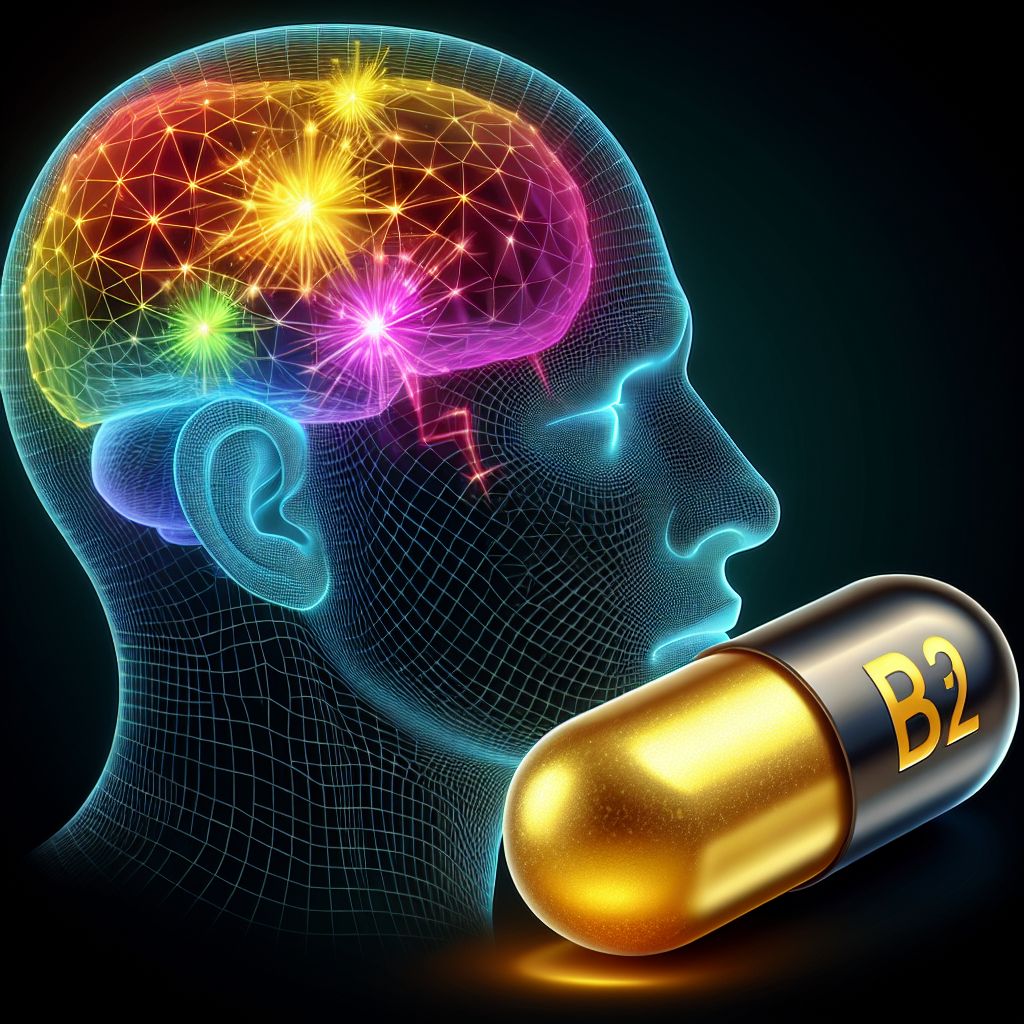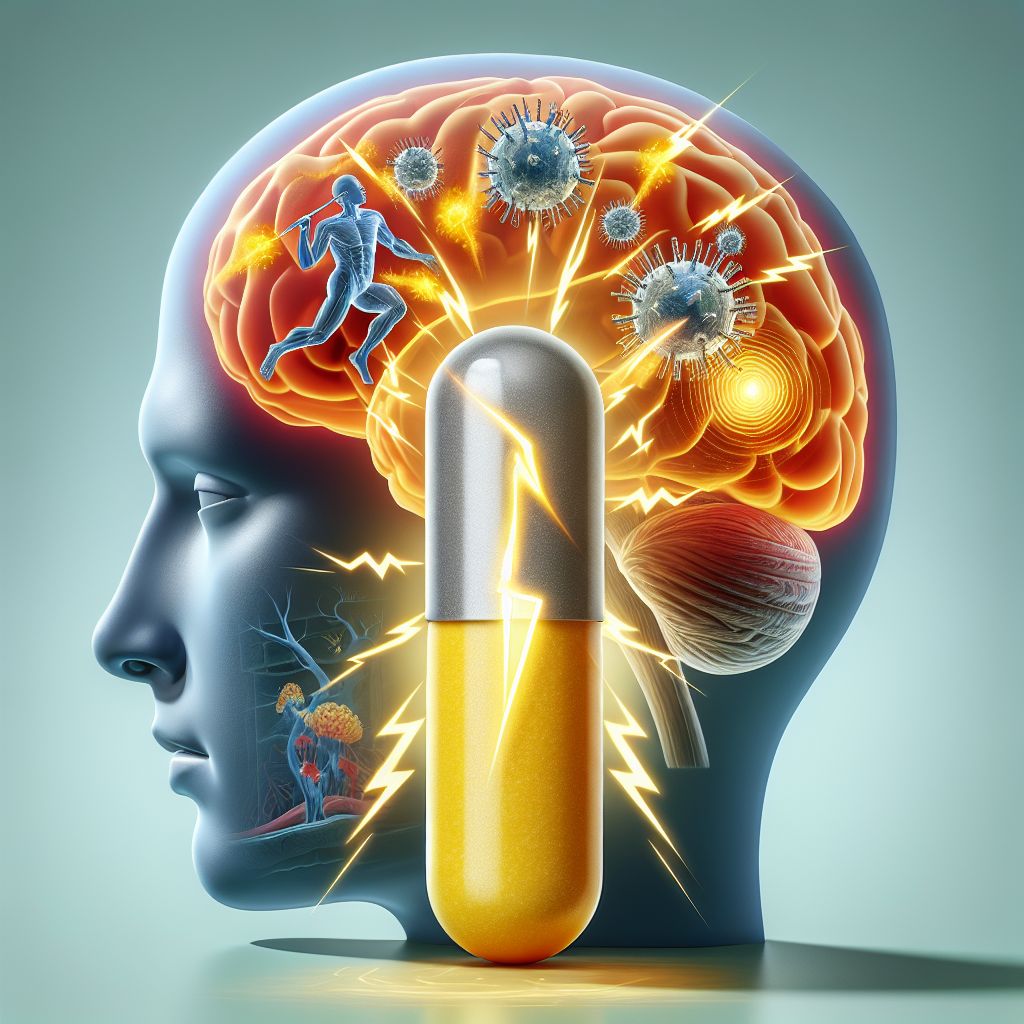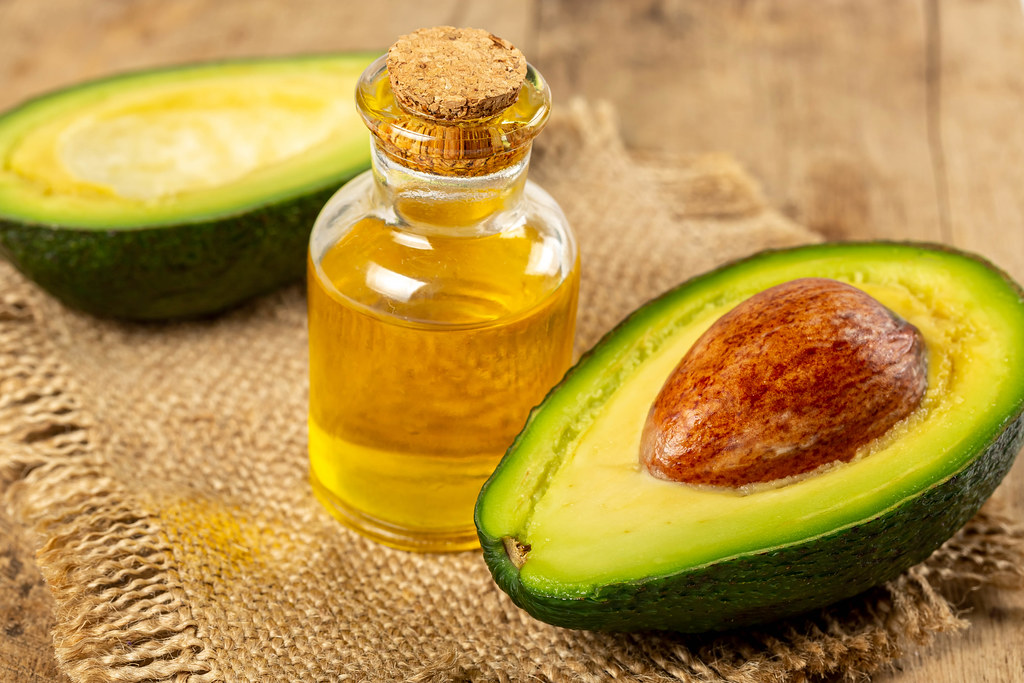
Key Takeaways
-
Riboflavin, also known as Vitamin B2, is a potential natural remedy for reducing migraine frequency.
-
Studies suggest that riboflavin can help correct mitochondrial dysfunction, which may be linked to migraines.
-
A common recommended dosage for migraine prevention is 400 mg of riboflavin per day.
-
Pure Encapsulations’ Riboflavin offers high-quality, research-backed ingredients for optimal benefits.
-
Incorporating riboflavin into your lifestyle can be done through supplements and riboflavin-rich foods.
Riboflavin’s Role in Migraine Relief
When it comes to migraines, the search for relief can often feel as pounding as the headache itself. That’s where riboflavin, a real beacon of hope, comes into play. Riboflavin, or Vitamin B2, isn’t just a vitamin that keeps your energy levels up; it’s increasingly recognized for its potential in reducing migraine attacks. Now, let’s unwrap this package of hope and see how it can brighten the lives of those living with migraines.
What is Riboflavin and How Does it Work?

Riboflavin is one of the B vitamins, specifically Vitamin B2. It’s a crucial player in the body’s energy production and cellular growth. But why do we talk about it in the context of migraines? Well, it turns out that riboflavin has a special role in maintaining the brain’s delicate environment. It’s like a diligent caretaker that ensures the cellular processes in your brain are running smoothly, which can be particularly beneficial for those with migraines.
Most importantly, riboflavin is thought to improve mitochondrial function. Mitochondria are the powerhouses of our cells, and when they’re not working correctly, it can lead to an energy deficit, especially in the brain. This dysfunction is one of the suspects behind the mystery of migraines. By stepping in and supporting these tiny energy factories, riboflavin may help prevent the onset of migraine attacks.

Therefore, by ensuring that the brain’s energy supply is stable, riboflavin can help keep the neurological peace, potentially warding off the throbbing pain and other symptoms that come with migraines.
Scientific Studies on Riboflavin and Migraines
Let’s talk evidence. Several studies have illuminated the path by investigating riboflavin’s effects on migraines. In one study, participants who took 400 mg of riboflavin daily experienced significantly fewer migraines after three months. This dosage, which is well above the recommended daily intake for the average person, seems to be the sweet spot for migraine prevention.
Another study compared riboflavin to a common prescription medication for migraines. The results were encouraging; riboflavin held its ground, showing it could be just as effective as some pharmaceutical options. And the cherry on top? It’s generally well-tolerated with minimal side effects, making it a gentle giant in the world of migraine remedies.
Because of these promising results, riboflavin has earned its stripes and is recommended by some healthcare providers as part of a comprehensive approach to managing migraines.
Real Results: Riboflavin’s Impact on Migraine Sufferers
Now, let’s shift our focus from clinical studies to real-world experiences. After all, the proof of the pudding is in the eating, and in this case, the proof of riboflavin’s efficacy is in the relief felt by those who’ve tried it. People across the globe have turned to riboflavin in their quest for a more natural approach to managing migraines, and many have found a significant improvement in their symptoms.
Comparing Riboflavin to Common Migraine Treatments
When stacked up against common migraine treatments, riboflavin holds its own. While prescription medications can be effective, they often come with a list of potential side effects and can be costly over time. Riboflavin, on the other hand, is a low-risk supplement with a high reward potential. It’s also more affordable and accessible, making it a practical option for long-term use.
Integrating Riboflavin into Your Lifestyle
Adopting riboflavin into your daily regimen can be a breeze. If you’re considering riboflavin for migraine prevention, it’s essential to take it consistently. Remember, consistency is key to seeing results. You can either take a high-quality supplement like Pure Encapsulations’ Riboflavin or increase your intake of riboflavin-rich foods.
Besides that, it’s crucial to discuss with your healthcare provider before starting any new supplement, especially if you’re already on medication for migraines. They can guide you on the right dosage and ensure it won’t interact with your current treatments.
Everyday Foods Rich in Riboflavin
You might be wondering what foods can boost your riboflavin levels. Here’s a quick list to get you started:

“Vegetable salad on white ceramic bowl …” from www.pickpik.com and used with no modifications.
-
Almonds
-
Whole grains
-
Mushrooms
-
Spinach
-
Eggs
-
Lean meats
Incorporating these foods into your diet can complement your riboflavin supplementation and support overall well-being.
Enhancing Absorption: Tips for Maximizing Riboflavin Uptake

“Glass bottle with avocado oil and fresh …” from www.flickr.com and used with no modifications.
Getting the most out of your riboflavin involves more than just popping a pill or adding spinach to your omelet. Here are some tips to enhance absorption:
-
Pair riboflavin-rich foods with a source of healthy fats, like avocado or olive oil, to improve absorption.
-
Stay hydrated, as water-soluble vitamins like riboflavin are best absorbed with adequate hydration.
-
Spread out your riboflavin intake throughout the day, especially if you’re relying on dietary sources.
By following these simple steps, you can maximize the benefits of riboflavin for migraine prevention.
Frequently Asked Questions (FAQ)
As with any supplement, questions abound. Let’s address some common queries about riboflavin and migraines.
Can Riboflavin Cure My Migraines Completely?
While riboflavin has been shown to reduce the frequency and severity of migraines, it’s not a cure-all. Migraines are complex and can be triggered by various factors. However, riboflavin can be a valuable part of a comprehensive approach to managing migraine symptoms.
How Long Does it Take to See Results with Riboflavin?
Patience is a virtue, especially when it comes to natural remedies. It can take several weeks to a few months of consistent riboflavin intake to notice a significant change in migraine patterns. Stick with it, and you may be pleasantly surprised by the results.
Are There Any Side Effects of Taking Riboflavin?
Riboflavin is generally considered safe with a low risk of side effects. Some people might experience urine discoloration, which is harmless and due to the body excreting excess riboflavin. If you have any concerns, it’s best to consult your healthcare provider.
Is Riboflavin Suitable for Everyone?
Most people can take riboflavin without any issues, but it’s always wise to talk to your healthcare provider first. This is particularly important for pregnant or breastfeeding women, individuals with certain medical conditions, and those taking specific medications. For those suffering from chronic conditions such as migraines, exploring options like blue light therapy and supplements could be beneficial.
Can I Take Riboflavin with Other Migraine Medications?
Yes, riboflavin can often be taken alongside other migraine treatments, but it’s crucial to get the green light from your healthcare provider. They’ll ensure that there are no interactions and that you’re taking the proper dosage for your situation.
It’s also worth noting that while riboflavin is a fantastic supplement, it should not replace any prescribed medications without a doctor’s guidance. Combining riboflavin with a well-rounded treatment plan, including medication if necessary, is the best approach.
Ultimately, riboflavin has emerged as a beacon of hope for many who suffer from migraines. With its potential to reduce the frequency and severity of migraines and its minimal side effects, riboflavin is an excellent candidate for those looking to manage their symptoms naturally. By incorporating riboflavin into your lifestyle, whether through supplementation or diet, you can take a proactive step towards better migraine management and overall health. Remember, always consult with your healthcare provider before starting any new supplement, especially if you have existing health conditions or are on other medications.
With the right approach and a little bit of patience, you might just find that riboflavin is the missing piece in your migraine management puzzle. So why not give it a try and see if it can light up your life with fewer migraines?


